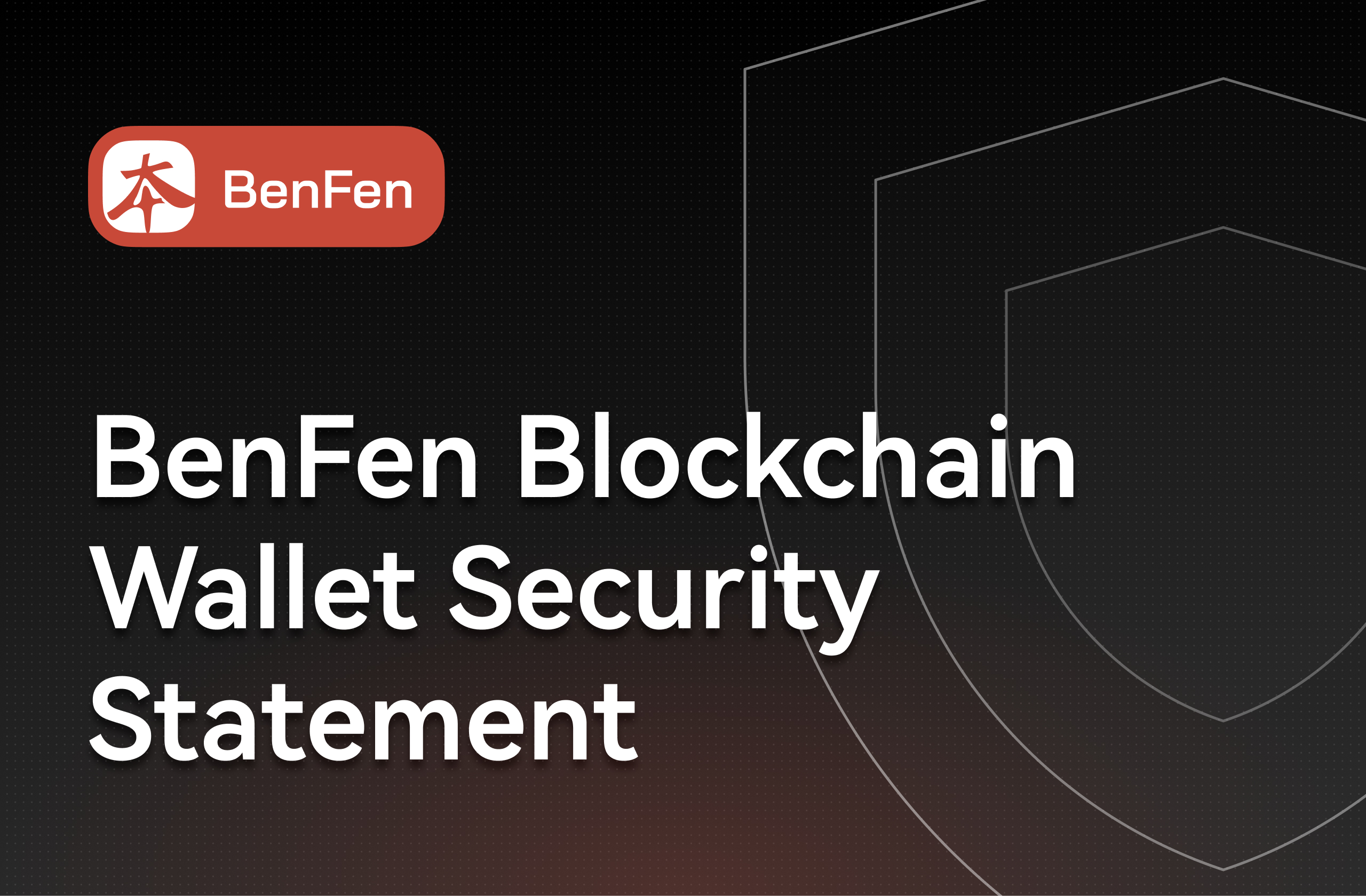
I. Background
DENVER, Oct. 17, 2025 (GLOBE NEWSWIRE) -- Recently, the news of "the seizure of nearly 130,000 bitcoins (valued at approximately $15 billion) from a Cambodian cybercrime network" has garnered unprecedented attention within and beyond the industry.
U.S. Law Enforcement exploited a pseudo-random number vulnerability in the private key generation process of certain Bitcoin wallets, reverse-engineering private keys through random flaws to track and seize assets.
The root cause of this vulnerability lies in insufficient entropy in the random seed, making private keys susceptible to brute-force reconstruction, severely threatening asset security.
This article analyzes the causes of vulnerability in question, elaborates on the technical security mechanisms of the BenPay wallet and the BenFen public chain, and provides clear and trustworthy security assurance for our partners and users.
II. A Renewed Warning on Random Number Vulnerabilities
The "pseudorandom number vulnerability" was first identified in 2018, stemming from issues in the Trezor library, affecting certain iOS wallets created between March and July 2018.
Similar issues are also reflected in CVE-2023-39910 (Milky Sad) disclosed in July 2023, involving the implementation of random number generation of the bx seed command in versions 3.0.0 (2017-03-08) to 3.6.0 (2019-08-29) of the open-source tool Libbitcoin Explorer (bx).
The vulnerability arose from using the Mersenne Twister (mt19937) pseudo-random number generator with only a 32-bit system time as the seed, resulting in insufficient entropy.
Attackers can thus reconstruct wallet seeds and derive private keys through brute-force methods, with the core issue of weak-entropy initializations and the use of a non-cryptographically secure pseudo-random number generator.
It is evident that a private key is essentially a long, unpredictable random number, and wallets must rely on high-quality random sources to generate private keys. Ideally, seeds should be derived from system entropy sources or hardware random numbers (e.g., memory noise, device clocks, or user inputs) to ensure randomness and uniqueness.
However, some early implementations used fixed or low-entropy time seeds, resulting in a degradation of randomness and allowing attackers to reproduce the private key generation process through brute force. This is the technical root cause of this incident.
This incident once again serves as a critical reminder to the industry: the quality of random numbers determines the lower bound of key security. As a next-generation open-source blockchain, BenFen employs industry-leading algorithms and processes for random number generation to ensure secure and reliable private key creation. Users can confidently rely on the BenPay wallet and its ecosystem, backed by the technical strength of the BenFen blockchain.
III. BenPay Wallet Security Architecture: Multiple Protection with Unified Experience
The BenPay wallet has a built-in zkLogin native wallet and supports the OpenBlock wallet, delivering a
unified management at the levels of user experience and security protection.
(A) zkLogin Wallet
The zkLogin wallet, natively supported by BenPay and built on the BenFen blockchain's zero-knowledge proof (ZKP) technology, enables secure, efficient, and keyless account login and transaction verification. Users can perform identification verification and on-chain operations without directly managing mnemonic phrases or private keys.
- zkLogin Workflow
- Based on the OAuth2.0 authorization mechanism, users generate a JSON Web Token (JWT) via their OAuth web accounts.
- The application submits the JWT and salt to a zero-knowledge proof generator to create a transaction proof.
- Users then leverage this proof to execute transactions on the BenFen blockchain, ensuring secure login and privacy protection.
- Proof Circuit Security Design
- Utilizes the Groth16 algorithm.
- Employs multi-party computation (MPC) across multiple devices to generate proving keys, mitigating risks of single-point random number leakage or tampering.
- Security Protection: The random sources are diverse and unpredictable, ensuring that the entire proof generation process is resistant to attacks and verifiable.
Through the zkLogin wallet system, BenPay has achieved a secure entry design for "one-click wallet creation and login", ensuring a convenient experience while also protecting users' privacy information.
(B) OpenBlock Wallet
BenPay also supports OpenBlock wallet login, providing a verifiable, auditable, and high-security-level private key management solution. The OpenBlock wallet utilizes MPC (Multi-Party Computation) and HSM (Hardware Security Module) architecture to ensure secure and unpredictable private key generation and signing.
- MPC Multi-Party Computation: Private keys are never exposed in memory, with distributed signing mechanisms eliminating single-point leakage risks.
- Random Number Generation: Using the crypto/rand library, the entropy source comes from the system's underlying hardware events to ensure randomness.
- HSM Hardware Protection: Signing occurs within a hardware security module, with random seeds derived from chip noise sources, supported by physical-level protection and multi-factor authentication.
Through layered encryption and isolation, the wallet system connected to BenPay provides high-level security protection at every stage of key generation, storage, and signature, significantly reducing the risk of sensitive information leakage and ensuring the safety of user assets.
IV. Official Commitment
After internal security audits and source code reviews, we solemnly declare:
- Neither BenFen nor BenPay series products use Libbitcoin Explorer or any derivative code.
- Non-cryptographically secure random algorithms such as mt19937 are not used for key, seed, or mnemonic generation;
- And not affected by CVE-2023-39910 or related "Milky Sad" weak random number vulnerabilities.
BenFen and BenPay will continue to follow the National Vulnerability Database (NVD), CVE official notifications, and other latest security information from authoritative security communities, conducting immediate risk assessments and responses in the first instance.
For further technical discussions, we welcome users and partners to contact us via our official secure channel: support@benpay.com.
A photo accompanying this announcement is available at https://www.globenewswire.com/NewsRoom/AttachmentNg/d48de4c9-584c-4354-ae60-63a43c37d392







